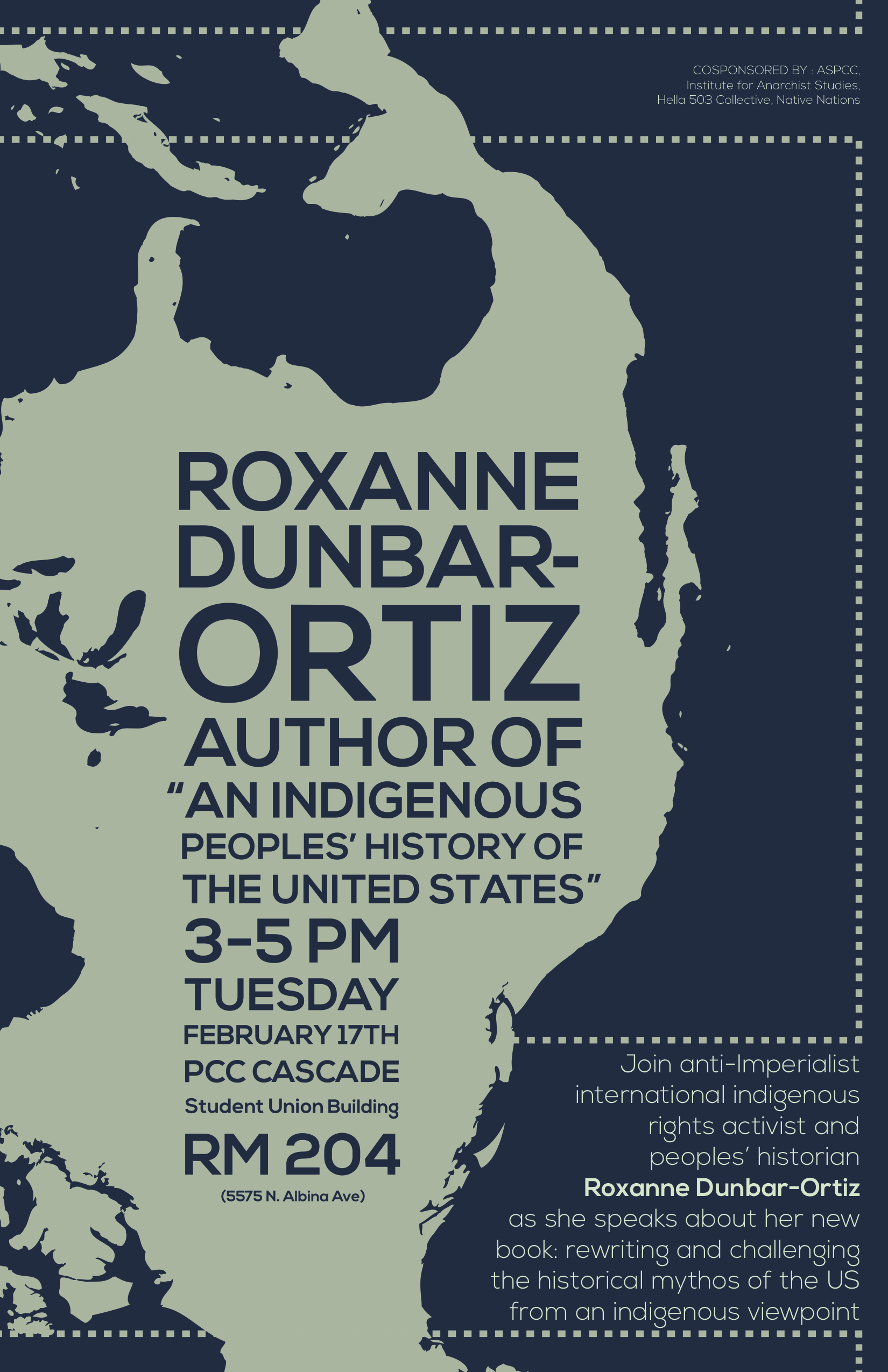In An Indigenous Peoples’ History of the United States, Roxanne Dunbar-Ortiz challenges the founding myth of the United States and shows how policy against the indigenous people was genocidal and imperialist—designed to crush the original inhabitants. Spanning more than three hundred years, this bottom-up history significantly re-frames how we view our past. Told from the viewpoint of the indigenous, it reveals how Native Americans, for centuries, actively resisted expansion of the US Empire.
Three talks:
Tuesday, February 17th, 3 – 5pm
PCC Cascade Campus
Student Union building, Room 204
(5575 N. Albina Ave)
Sponsored by: ASPCC, Native Nations, Institute for Anarchist Studies (IAS), Hella 503 Collective
Wednesday, Feb 18,th 2:30 – 4:30pm
Reed College
Eliot 103
AND
6-9 pm
Portland State University
Native American Student and Community Center
(710 SW Jackson St.)
Sponsored by: Students for Unity, Indigenous Nations Studies, Eradicating Offensive Native Mascotry, KBOO, Hella 503 Collective, Institute for Anarchist Studies (IAS), Portland Central America Solidarity Committee (PCASC), Portland Rising Tide, Rethinking Schools of Portland, Oregon Jericho, Civil Liberties Defense Center
Roxanne Dunbar-Ortiz grew up in rural Oklahoma, daughter of a landless farmer and half-Indian mother. She graduated with a degree in History from San Francisco State College and completed her doctorate in History at the University of California, Los Angeles. From 1967 to 1972, she was a full time activist living in various parts of the United States, traveling to Europe, Mexico, and Cuba. This time of her life and the aftermath, 1960-1975, is the story told in her book Outlaw Woman: Memoir of the War Years.
Roxanne took a position teaching in a newly established Native American Studies program at California State University at Hayward, and helped develop the Department of Ethnic Studies, as well as Women’s Studies. In 1974, she became active in the American Indian Movement (AIM) and the International Indian Treaty Council, beginning a lifelong commitment to international human rights.
Her first published book, The Great Sioux Nation: An Oral History of the Sioux Nation and its Struggle for Sovereignty, was published in 1977 and was presented as the fundamental document at the first international conference on Indians of the Americas, held at United Nations’ headquarters in Geneva, Switzerland. That book was followed by two others in the following years: Roots of Resistance: A History of Land Tenure in New Mexico, 1680-1980 and Indians of the Americas: Human Rights and Self-Determination.

